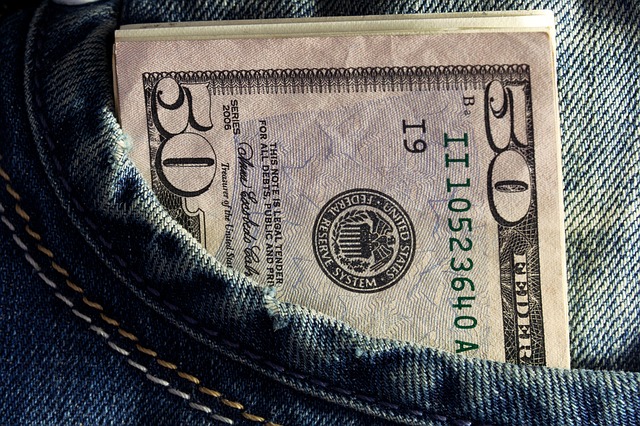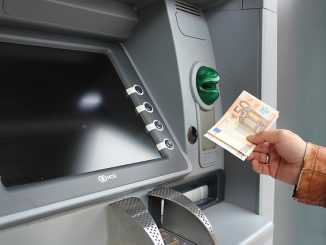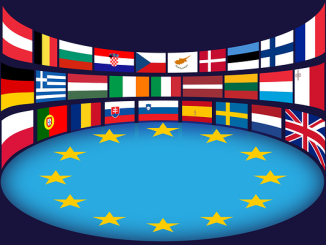
As technology evolves, the idea of an Unconditional or Universal Basic Income (UBI) — a scheme in which every American would receive regular payments from the government to cover basic living costs — continues to gain momentum. In recent months, tech leaders who have come out in favor of UBI as an effective system in helping counteract any future automation-caused unemployment include billionaire Richard Branson, serial entrepreneur and SpaceX/Tesla (NASDAQ:TSLA) CEO Elon Musk, Facebook’s (NASDAQ:FB) Mark Zuckerberg, Slack CEO Stewart Butterfield and Y Combinator President Sam Altman. Now, another UBI proponent in the form of a study has emerged. According to research carried out by the Roosevelt Institute, implementing basic income in the United States could make the US economy trillions of dollars larger, permanently.
The study looked at three different models: a “full basic income” in which every adult gets $1,000 a month ($12k a year), a “partial basic income” of $500 per month given to every adult ($6,000 a year), and a “child allowance” in which every child gets $250 a month ($3,000 a year). The research, performed by Roosevelt research director Marshall Steinbaum, Michalis Nikiforos of the Levy Institute, and Gennaro Zezza, an associate professor of economics at the University of Cassino in Rome, Italy and a member of the Levy Institute’s Macro-Modeling Team, concluded that the larger the sum of the basic income model – which could replace all current welfare programs, including Social Security – the more significant the positive economic impact.
Specifically, the experts found that the program’s largest cash version – $12,000 yearly for all adults, funded by increasing the federal deficit rather than paying by increasing taxes on households, which according to the study, is not expansionary as a policy – would expand the US economy by as much as 13.10% over the baseline after eight years, by which time its stimulative effect would start to diminish. What’s interesting about this is that despite the dissipating aspect of the policy, the research notes that the level of economic output will remain permanently higher. According to data from the Congressional Budget Office, that would translate to an increase in the country’s Gross Domestic Product (GDP) of $2.48 trillion by year 2025, raising it to more than $21 trillion.
The researchers also assumed a UBI model would solve a demand problem in the economy — i.e., lack of consumer spending, which is an aspect that could seriously undermine economic expansion and it’s usually seen as a key factor in driving growth during economic recoveries.
“Fundamentally, the larger the size of the UBI, the larger the increase in aggregate demand and thus the larger the resulting economy is,” they wrote.
It should be noted that a potential drawback to this approach is that most of the additional spending would be towards a standard of living that provides only the bare necessities of life. We are certainly not talking here about consumers spending money on big-ticket items like cars and refrigerators which are known as drivers of economic growth.
Other possible negative economic effects of the scheme include inflation or deflation because of increases in the supply of money. An economy that could get overheated if spending increases too fast, prompting costs like interest rates on mortgages and credit cards to rise is another threat. UBI opponents also warn the concept of money for nothing violates the work ethic and could even make poverty worse.
Meanwhile, there are also economic theories suggesting that a universal basic income is what’s needed to correct what is thought as the great moral issue of our time: income inequality. Issues of inequality continue to play a large role in the public discourse, and for a good reason. Based on statistics, U.S. income inequality is the highest it has been since 1928-significantly increasing in the 1970s by flowing unequally to those at the very top of the income spectrum. In fact, the rich keep on raking in. The top 1% currently earn an average of $1.3 million a year, more than 3x as much as the 1980s. According to top notch economists like Thomas Piketty, “in 1980, top 1% adults earned on average 27 times more than bottom 50% adults, while they earn 81 times more today”.
A nationwide UBI scheme, as an alternative to state subsidies for the poor and unemployed, may also help society avoid the problems caused by an increase in unemployment that could lead to a reduction in economic and violent crimes. Crime after all, is a natural and inevitable effect of poverty. In a 2002 study, it was found out that crime rates and inequality are positively correlated.
While economists will continue to speculate how transformative a basic income program could really be, the reality is that in an age of exponentially increasing economic and social insecurity, the Roosevelt study should get people seriously thinking about UBI as a system that will eventually become implementable given that in 10 years time the effects of automation in various socioeconomic environments will become unavoidable. Nearly half of all U.S. jobs could be replaced by robots in the near future, according to an Oxford University study. Hopefully, this fact will convince our political class to seriously start looking into the concept as a policy, and for once, do something that will reflect the desires of the average citizen.




This is most outrageous research. UBI is how the rich will remain rich and avoid an Arab Spring type of revolution that is bound to come when most jobs are lost to Automation/Robotics (see McKinsey report recently published — 77 Million US jobs lost by 2030). Trump is going to accelerate these job losses via the GOP Tax Cuts to the rich. This is the beginning of the end.
UBI is an interesting idea but most people disconnect cash from productivity which is a huge mistake. Cash is not productivity. I see people claiming that with UBI no one would need to do low paying ‘horrible’ jobs but that’s the problem who would do those jobs? We would still need low skilled workers to do jobs like janitor, clean cars, clean gutters, mow lawns, and so on so what would most likely happen is that those jobs would become more expensive as people don’t ‘need’ to take them any more. I don’t think the positive affect would be nearly as great as some researchers suggest. Just remember money is NOT productivity, though it is used to measure productivity, it is not the same thing. If a society becomes LESS productive it becomes less wealthy.
Defined Benefits Pension is UBI for certain groups. A better form of UBI is free education. Just imagine how many potential entrepreneurs were burdened by the student debt? Stop giving the professors crazy salary and stop all the pensions system just 401k like everybody.